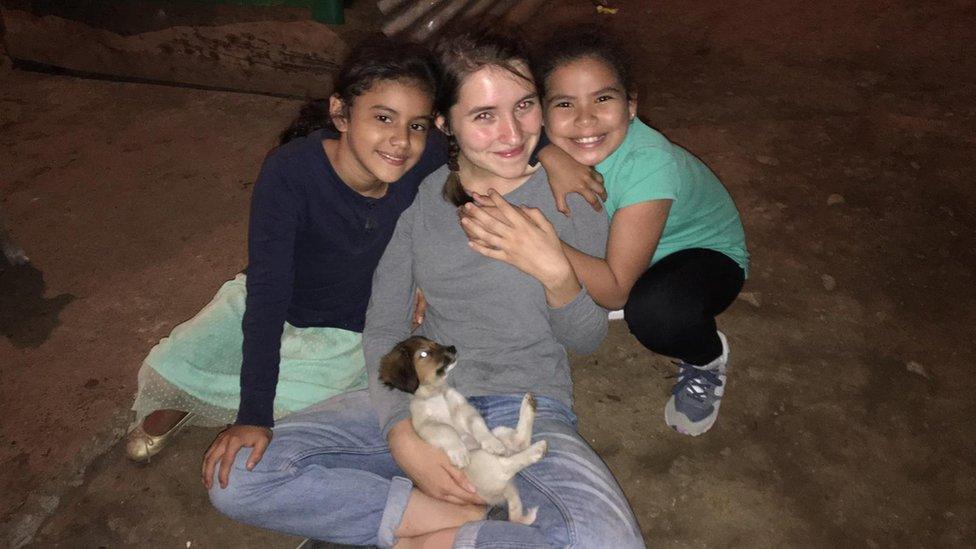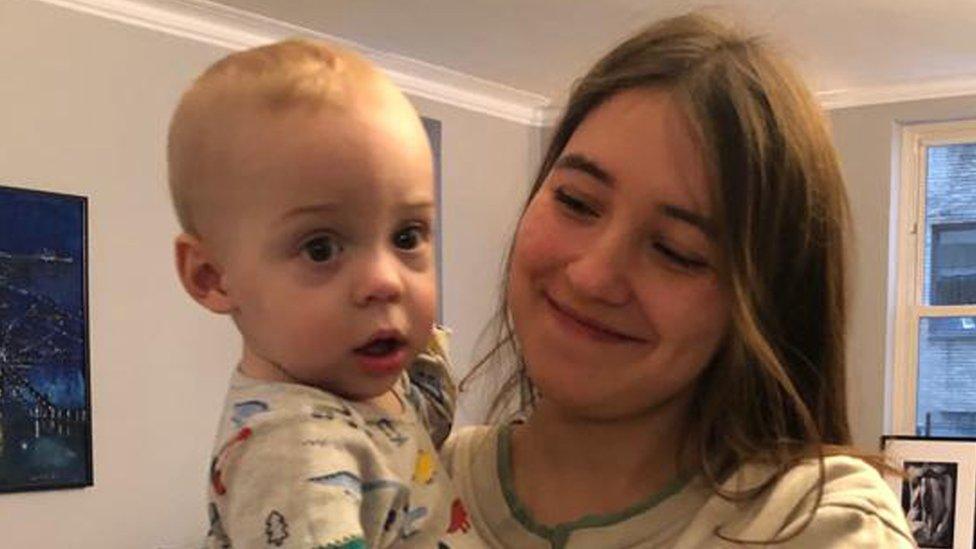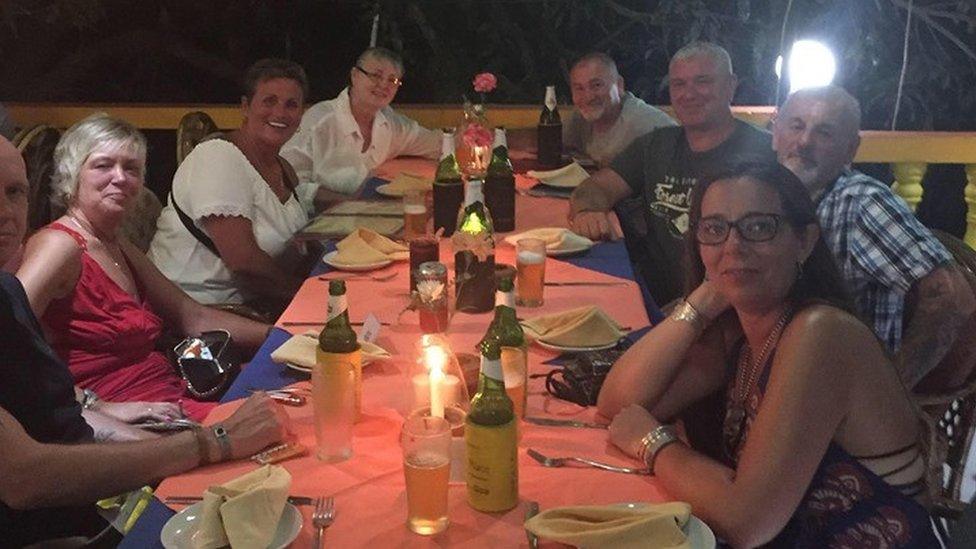Coronavirus: Family fears for daughter stranded in Honduras
- Published

Freya Madeley travelled to Honduras to volunteer as an English teacher
The family of a "scared" 20-year-old British woman stranded in Central America, is calling on the government to bring her home from a local airport.
Freya Madeley is attempting to return from a rural area of Honduras, where she has been volunteering.
Her family say the five-hour trip to the capital city for a flight is "too dangerous" and want her to travel from an airport 19 miles (30 km) away.
"She's basically completely stuck," said Ms Madeley's mother Maria.
The British Embassy has secured a seat on a flight to Zurich on Thursday and will provide Ms Madeley with an official safe passage letter to get to the airport in the capital, Tegucigalpa.
Her family, from Nailsworth, Gloucestershire, are calling for the government to arrange a flight from Ramon Villeda Morales International Airport, which is much closer to the school where she has been volunteering.

Ms Madeley's family are calling for help from the government to bring her home safely
"Food is getting scarce. There is a complete lockdown with gangs and police trying to control it.
"She hasn't got much local currency. She's scared, she's nervous," said Maria Madeley.
Her sister Holly said the whole family was worried for Freya's safety.
"She has been warned by locals that the police have the authority to shoot anyone who runs away from them, and she has witnessed incidents of police brutality," she said.
Holly said there were roadblocks, with armed men demanding payments to pass through, making it unsafe for her sister to travel to Tegucigalpa.
A Foreign and Commonwealth Office spokeswoman said: "Our consular teams are doing everything they can, especially for those in difficulty, to keep Brits informed on the latest developments and help them return - on commercial flights where they are still available or special charter flights as well."
The government's travel advice page for Honduras, external says that crime and violence are a serious problem throughout the country and it has one of the highest homicide rates in the world.
British visitors are urged to exercise a high degree of caution and to avoid using public buses and demonstrations, but most visits are described as 'trouble free'.
- Published1 April 2020

- Published3 April 2020

- Published2 April 2020
